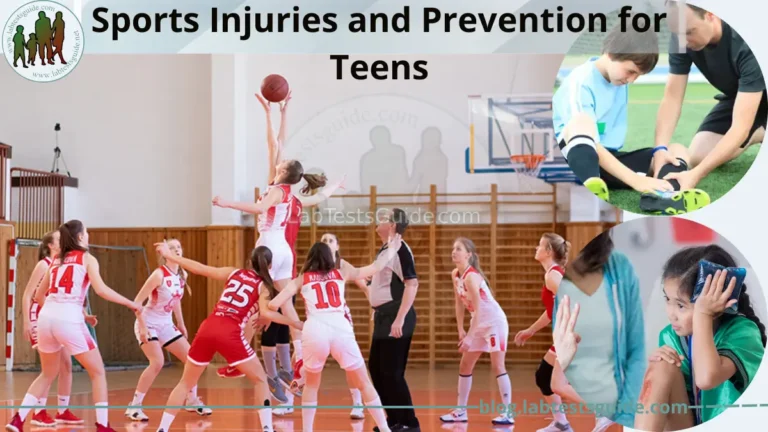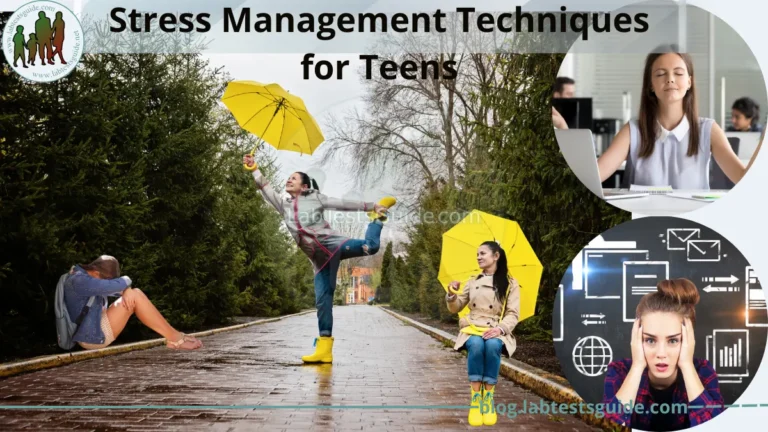Positive parenting techniques for teenagers involve building and maintaining a strong, supportive relationship with your teenager while also setting clear boundaries and expectations. Here are some tips for practicing positive parenting with your teenager:

Importance of Positive Parenting for Teenagers:
Here are some points on the importance of positive parenting for teenagers:
- Positive parenting can help foster a strong, healthy relationship between parents and teenagers.
- It can help build trust and mutual respect between parents and teenagers.
- Positive parenting can help teenagers develop a sense of self-worth and self-esteem.
- It can provide teenagers with the guidance and support they need to make responsible choices and avoid risky behaviors.
- Positive parenting can help teenagers develop healthy coping mechanisms and resilience to deal with life’s challenges.
- It can help parents maintain open communication with their teenagers, which is critical for building a strong relationship.
- Positive parenting can help teenagers feel loved, supported, and empowered, which is essential for their mental and emotional well-being.
Active Listening:
Active listening is a communication technique that involves fully concentrating on what someone is saying and understanding their message. It requires paying attention to not only the words being spoken but also the tone of voice, body language, and context of the conversation. Active listening is an important aspect of positive parenting for teenagers as it helps parents understand their teenagers’ perspectives and experiences.
When practicing active listening with your teenager, it’s important to:
- Give your full attention: Put aside any distractions and focus on the conversation.
- Show empathy: Try to understand your teenager’s feelings and emotions and validate them.
- Ask open-ended questions: Encourage your teenager to elaborate on their thoughts and feelings by asking open-ended questions.
- Avoid interrupting: Let your teenager finish speaking before responding.
- Summarize and reflect: Repeat back what you heard to ensure that you understood your teenager correctly and show that you are listening.
By practicing active listening with your teenager, you can help build a stronger relationship and foster open communication, which can help promote positive behavior and prevent conflicts.
Emotion Regulation:
Emotion regulation refers to the ability to effectively manage and regulate one’s emotions in response to different situations. It is an important aspect of positive parenting for teenagers as teenagers often experience a wide range of intense emotions that can be challenging to manage.
As a parent, you can help your teenager develop effective emotion regulation skills by:
- Acknowledging and validating their emotions: Encourage your teenager to express their emotions without judgment and help them recognize and label their emotions.
- Teaching coping strategies: Help your teenager develop healthy coping strategies such as deep breathing, mindfulness, exercise, or talking to a trusted friend or family member.
- Modeling healthy emotional expression: Show your teenager healthy ways to express emotions such as talking openly, using “I” statements, and taking a break to calm down before reacting.
- Encouraging problem-solving skills: Help your teenager learn problem-solving skills so they can effectively deal with challenging situations and manage their emotions.
- Providing a safe and supportive environment: Create a safe and supportive environment where your teenager feels comfortable expressing their emotions and seeking help when needed.
By helping your teenager develop effective emotion regulation skills, you can help them navigate their teenage years with greater ease and resilience, and promote positive mental health and well-being.
Establishing Clear Boundaries:
Establishing clear boundaries is an important aspect of positive parenting for teenagers as it helps them understand what is expected of them and helps promote responsible behavior. Clear boundaries also provide teenagers with a sense of safety and security, knowing what they can and cannot do.
To establish clear boundaries with your teenager, consider the following tips:
- Set clear expectations: Be clear about your expectations and rules and make sure your teenager understands them. Avoid vague or confusing language.
- Involve your teenager: Involve your teenager in the process of setting boundaries and rules. This will help them feel more ownership and responsibility over their behavior.
- Explain the reasons behind the rules: Provide a rationale for why certain rules are in place, such as safety or health concerns. This can help your teenager understand and respect the boundaries.
- Be consistent and follow-through: Ensure that you are consistent in enforcing the rules and that there are consequences for breaking them. This will help reinforce the importance of the boundaries and promote responsible behavior.
- Be flexible: While it’s important to set clear boundaries, it’s also important to be flexible and willing to adapt to your teenager’s changing needs and circumstances.
By establishing clear boundaries with your teenager, you can help promote responsible behavior and provide a sense of safety and security. This can also help prevent conflicts and promote positive communication between you and your teenager.
Allowing for Mistakes and Learning Opportunities:
Allowing for mistakes and learning opportunities is an important aspect of positive parenting for teenagers as it helps them develop resilience and learn from their experiences. Teenagers are still learning and growing, and mistakes are a natural part of that process.
To allow for mistakes and learning opportunities, consider the following tips:
- Encourage independence: Give your teenager opportunities to make their own decisions and take responsibility for their actions.
- Provide guidance and support: Offer guidance and support when your teenager makes mistakes, but avoid stepping in and solving their problems for them.
- Help them learn from mistakes: Encourage your teenager to reflect on their mistakes and learn from them. Help them identify what went wrong and what they can do differently in the future.
- Avoid harsh criticism: While it’s important to hold your teenager accountable for their actions, avoid harsh criticism or blame. Instead, focus on problem-solving and finding solutions.
- Celebrate successes: Celebrate your teenager’s successes and accomplishments, no matter how small. This can help boost their confidence and promote positive behavior.
By allowing for mistakes and learning opportunities, you can help your teenager develop resilience and learn important life skills. This can also help promote positive behavior and communication between you and your teenager.
Positive Reinforcement:
Positive reinforcement is a technique used in positive parenting for teenagers to encourage and reinforce positive behavior. It involves providing rewards or praise for good behavior, which can motivate your teenager to continue the positive behavior.
To effectively use positive reinforcement, consider the following tips:
- Be specific: Be specific about what behavior you are praising or rewarding. For example, instead of saying “good job,” say “I appreciate how you cleaned your room without being asked.”
- Use praise: Use verbal praise to acknowledge good behavior. This can be as simple as saying “thank you” or “well done.”
- Provide rewards: Provide rewards for positive behavior such as a favorite meal, a special activity, or extra privileges. Rewards don’t have to be big or expensive to be effective.
- Be consistent: Be consistent in your use of positive reinforcement to ensure that your teenager understands the connection between their behavior and the reward.
- Avoid bribes: Avoid using rewards as bribes for your teenager to do something they don’t want to do. Instead, focus on rewarding positive behavior.
By using positive reinforcement, you can help promote positive behavior and motivation in your teenager. It can also help build a stronger relationship between you and your teenager by creating a positive and supportive environment.
Avoiding Harsh Criticism:
Avoiding harsh criticism is an important aspect of positive parenting for teenagers as it can help promote a positive and supportive environment for your teenager to grow and learn in. Harsh criticism can lead to feelings of shame, guilt, and low self-esteem, which can be detrimental to your teenager’s development and mental health.
To avoid harsh criticism, consider the following tips:
- Focus on the behavior, not the person: When providing feedback, focus on the behavior rather than the person. Instead of saying “you’re lazy,” say “I noticed that you didn’t finish your chores on time.”
- Use “I” statements: Use “I” statements to express your feelings and concerns. For example, “I feel frustrated when you don’t listen to me” instead of “You’re always ignoring me.”
- Be specific: Be specific about the behavior you want to address and provide clear examples. This can help your teenager understand what they need to work on.
- Provide constructive feedback: Provide feedback that is helpful and constructive, rather than critical. Offer suggestions for improvement and work together to come up with a solution.
- Show empathy: Try to see things from your teenager’s perspective and show empathy towards their feelings and experiences. This can help build a stronger relationship and promote positive communication.
By avoiding harsh criticism, you can help create a positive and supportive environment for your teenager to grow and learn in. This can also help build a stronger relationship between you and your teenager based on trust, respect, and understanding.
Spending Quality Time Together:
Spending quality time together is an important aspect of positive parenting for teenagers as it can help strengthen your relationship with your teenager and create opportunities for positive interactions and communication.
To spend quality time together, consider the following tips:
- Schedule regular time: Set aside regular time to spend with your teenager. This can be a weekly family night or a monthly outing.
- Let your teenager choose the activity: Let your teenager choose the activity or outing to do together. This can help promote their independence and give them a sense of control.
- Put away distractions: Put away distractions such as phones, laptops, and tablets during your time together to ensure that you are fully present and engaged.
- Be open to communication: Use your time together to communicate and connect with your teenager. Be open to listening to their thoughts and feelings, and share your own as well.
- Have fun: Use your time together to have fun and create positive memories. Laugh together and enjoy each other’s company.
By spending quality time together, you can help strengthen your relationship with your teenager and create a positive and supportive environment for them to grow and learn in. It can also help promote positive communication and behavior, as well as provide opportunities for you to model positive behavior and values.
Balancing Independence with Guidance:
Balancing independence with guidance is an important aspect of positive parenting for teenagers as it can help promote your teenager’s development and autonomy while also providing necessary guidance and support.
To balance independence with guidance, consider the following tips:
- Encourage independence: Encourage your teenager to make their own decisions and take on more responsibility. This can help promote their independence and build their self-confidence.
- Provide guidance: Provide guidance and support when needed, such as when your teenager is making a difficult decision or facing a new challenge. Offer advice and share your own experiences, but also allow your teenager to make their own decisions.
- Set clear expectations: Set clear expectations and boundaries for your teenager, and communicate them clearly. This can help your teenager understand what is expected of them and feel more secure.
- Foster open communication: Foster open communication with your teenager by listening to their thoughts and feelings without judgment, and by sharing your own thoughts and feelings as well.
- Respect your teenager’s autonomy: Respect your teenager’s autonomy and independence, and avoid micromanaging or controlling their every move.
By balancing independence with guidance, you can help promote your teenager’s development and autonomy while also providing necessary guidance and support. It can also help build a stronger relationship between you and your teenager based on trust, respect, and understanding.
Encouraging Responsibility and Accountability:
Encouraging responsibility and accountability is an important aspect of positive parenting for teenagers as it can help promote your teenager’s personal growth and development, as well as prepare them for adulthood.
To encourage responsibility and accountability, consider the following tips:
- Set expectations: Set clear expectations and boundaries for your teenager, and communicate them clearly. This can help your teenager understand what is expected of them and feel more secure.
- Encourage decision-making: Encourage your teenager to make their own decisions, and provide guidance and support when needed. This can help promote their independence and build their self-confidence.
- Hold your teenager accountable: Hold your teenager accountable for their actions and decisions. Encourage them to take responsibility for their mistakes and work towards making amends.
- Provide opportunities for growth: Provide your teenager with opportunities for personal growth and development, such as volunteering or taking on new responsibilities at home or at school.
- Model responsible behavior: Model responsible behavior yourself and hold yourself accountable for your actions. This can help teach your teenager the importance of responsibility and accountability.
By encouraging responsibility and accountability, you can help promote your teenager’s personal growth and development, as well as prepare them for adulthood. It can also help build a stronger relationship between you and your teenager based on trust, respect, and understanding.
Leading by Example:
Leading by example is an important aspect of positive parenting for teenagers as it can help promote positive behavior and values, as well as foster a strong and healthy relationship between you and your teenager.
To lead by example, consider the following tips:
- Model positive behavior: Model positive behavior and values, such as honesty, kindness, and respect. Your teenager is more likely to adopt these behaviors if they see you practicing them yourself.
- Communicate effectively: Communicate effectively with your teenager by using respectful and positive language. This can help promote positive communication and reduce conflicts.
- Manage stress effectively: Manage stress effectively and demonstrate healthy coping mechanisms to your teenager. This can help teach them how to manage their own stress and emotions in a healthy way.
- Prioritize self-care: Prioritize self-care and demonstrate the importance of taking care of oneself physically, mentally, and emotionally.
- Show appreciation: Show appreciation and gratitude towards your teenager and others in your life. This can help promote a positive and supportive environment.
By leading by example, you can help promote positive behavior and values, as well as foster a strong and healthy relationship between you and your teenager. It can also help teach your teenager important life skills and prepare them for adulthood.






